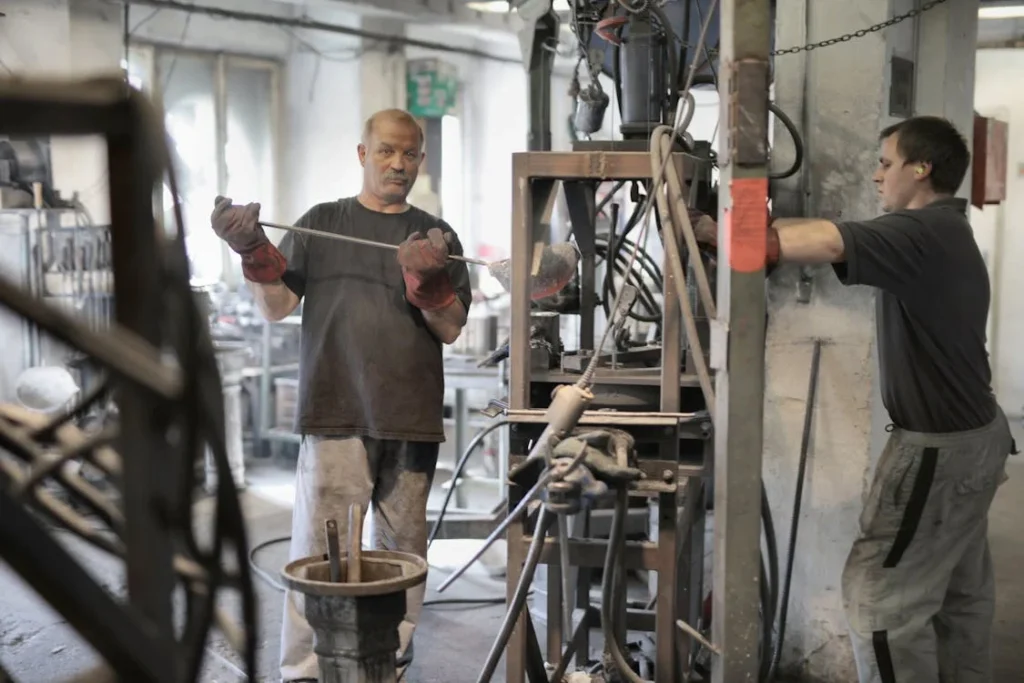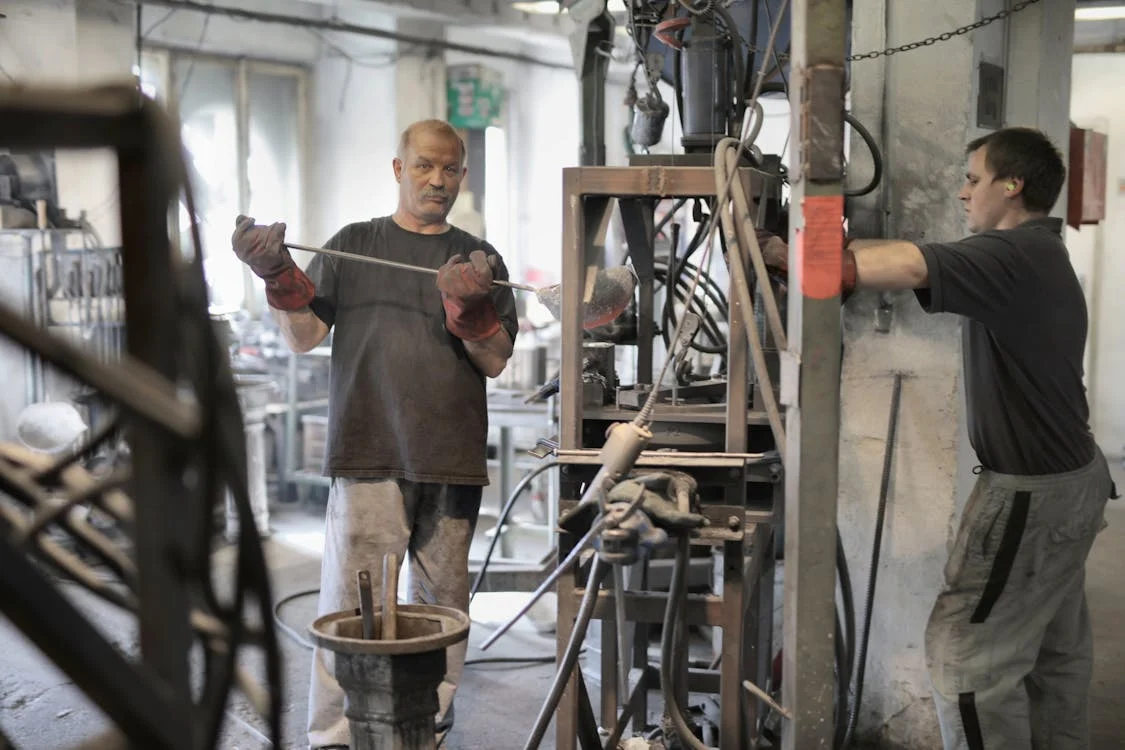The construction industry in Australia is a dynamic and thriving sector that plays a crucial role in shaping the nation’s infrastructure and built environment. From towering skyscrapers to residential homes, construction professionals are the backbone of these monumental projects. But what does it take to become a master in this field? In this blog, we will delve into the journey of becoming a construction professional in Australia, from the early days as an apprentice to achieving mastery in the craft.

The Apprenticeship Phase
The apprenticeship phase marks the foundational stage of a construction professional’s journey, where theory meets practice in a dynamic learning environment. For many individuals embarking on this path, apprenticeships represent the gateway to a fulfilling career in the construction industry. These programs offer a unique opportunity for hands-on experience and mentorship under the guidance of seasoned professionals, setting the stage for future success.
In Australia, apprenticeships are commonly facilitated through vocational education and training (VET) programs, which serve as the backbone of the country’s workforce development initiatives. Through these programs, aspiring construction professionals immerse themselves in the intricacies of their chosen trade, whether it be carpentry, plumbing, electrical work, or beyond. The structured curriculum combines classroom instruction with practical training, ensuring a well-rounded education that prepares individuals for the challenges of the job site.
During the apprenticeship phase, participants delve into the nuts and bolts of construction, mastering essential skills that form the bedrock of their craft. From interpreting blueprints to welding tools and equipment with precision, apprentices learn the ins and outs of their trade through hands-on practice and real-world application. Moreover, they gain invaluable insights by working alongside seasoned tradespeople, absorbing knowledge and techniques honed through years of experience.
One of the distinguishing features of apprenticeships is the symbiotic relationship between on-the-job training and formal education. Apprentices not only gain practical experience on construction sites but also attend TAFE (Technical and Further Education) institutes or other accredited training providers to pursue formal qualifications. These programs, typically culminating in a Certificate III or IV in Building and Construction, offer a comprehensive curriculum that covers everything from building codes and regulations to project management principles.
The integration of theoretical knowledge with practical skills equips apprentices with a solid foundation upon which to build their careers. They emerge from their apprenticeships with a deep understanding of construction principles and practices, ready to tackle the challenges of the industry head-on. Moreover, the hands-on nature of apprenticeships fosters a sense of confidence and competence, empowering individuals to take ownership of their professional development journey.
Beyond the acquisition of technical skills, apprenticeships also instil important values such as teamwork, responsibility, and a strong work ethic. Participants learn to collaborate effectively with colleagues, communicate clearly with clients, and prioritise safety above all else. These soft skills are just as crucial as technical expertise in the construction industry, laying the groundwork for long-term success and career advancement.
In summary, apprenticeships serve as the cornerstone of the journey toward mastery in the construction profession. Through a blend of practical experience and formal education, aspiring professionals acquire the skills, knowledge, and values necessary to thrive in this dynamic and ever-evolving field. By investing in apprenticeship programs, Australia is not only nurturing the next generation of skilled tradespeople but also building a solid foundation for the future of its construction industry.
The Journey to Journeyman
After completing their apprenticeship, construction professionals transition into the pivotal phase of becoming a journeyman, marking a significant milestone in their career trajectory. The journeyman phase is not just a continuation of their learning journey but a crucial stepping stone towards mastering the intricacies of the construction field. It is a period characterised by ongoing skill refinement, experiential growth, and the pursuit of excellence in their chosen trade.
As journeymen, construction professionals embark on a journey of self-discovery and specialisation within the vast landscape of the industry. This phase offers them the opportunity to explore different avenues and fine-tune their skills in specific areas that align with their interests and aptitudes. Some may gravitate towards residential construction, where they hone their craft in building homes and structures that form the fabric of communities. Others may be drawn to the complexities of commercial or industrial projects, tackling large-scale developments that shape urban landscapes and drive economic growth.
Specialisation becomes a hallmark of the journeyman phase, as construction professionals carve out their niche and distinguish themselves in their respective fields. Whether it’s mastering the art of carpentry, precision in bricklaying, or expertise in plumbing and electrical work, journeymen delve deep into their chosen specialties, honing their skills to perfection. This specialisation not only enhances their proficiency but also opens up new avenues for career advancement and professional growth.
Moreover, the journeyman phase is a time of continuous learning and professional development. Recognizing the ever-evolving nature of the construction industry, journeymen seize opportunities to expand their knowledge base and stay abreast of emerging trends and technologies. Pursuing additional certifications and licences becomes a common pursuit among journeyman construction professionals, as they seek to enhance their credentials and unlock new career opportunities.
For instance, obtaining a builder’s licence is a significant milestone for many journeymen, as it grants them the authority to undertake larger projects and assume greater responsibilities. With this licence in hand, individuals can venture into entrepreneurship, establishing their own construction businesses and taking on leadership roles in the industry. Moreover, continuous learning is ingrained in the journeyman ethos, as professionals strive to stay ahead of the curve amidst evolving building codes, safety regulations, and technological advancements.
In essence, the journeyman phase is a transformative period in the career trajectory of construction professionals, where they transition from apprentices to seasoned practitioners, poised for mastery in their craft. Through specialisation, continuous learning, and a relentless pursuit of excellence, journeymen lay the groundwork for a fulfilling and prosperous career in the dynamic world of construction. As they navigate the challenges and opportunities that lie ahead, journeymen embody the spirit of resilience, innovation, and lifelong learning that defines the essence of the construction profession.

Mastering the Craft
Becoming a master in the construction industry represents the pinnacle of achievement, marking the culmination of years of unwavering dedication, relentless hard work, and a commitment to lifelong learning. It is a journey fraught with challenges and triumphs, where individuals strive to reach the zenith of their profession through a combination of expertise and experience.
Master craftsmen and women epitomise the epitome of excellence in their field, possessing a level of skill and proficiency that sets them apart from their peers. They are the architects of the built environment, capable of transforming visions into reality with precision and finesse. But mastery extends beyond technical prowess; it encompasses a multifaceted skill set that includes strong leadership, effective communication, and adept project management.
Indeed, masters in the construction industry are not just artisans; they are visionaries and leaders who possess the acumen to navigate the complexities of modern construction projects. They have the ability to oversee multifaceted endeavours from conception to completion, orchestrating teams, resources, and timelines with finesse. Their keen eye for detail ensures that every aspect of the project meets the highest standards of quality, safety, and efficiency.
In Australia, the path to mastery in the construction industry often entails pursuing additional qualifications and certifications that augment one’s expertise. Advanced credentials, such as a Diploma or Advanced Diploma in Building and Construction Management, provide individuals with the requisite knowledge and skills to assume leadership roles within the industry. Whether as project managers, site supervisors, or construction managers, these roles require a blend of technical acumen, strategic thinking, and interpersonal skills.
Yet, becoming a master in the construction industry transcends mere academic achievements; it is a journey of continuous improvement and innovation. Masters are perpetual students of their craft, constantly seeking new ways to enhance processes, adopt sustainable practices, and leverage emerging technologies. They embrace change as an opportunity for growth, pushing the boundaries of what is possible to deliver better outcomes for their clients and communities.
In essence, becoming a master in the construction industry is not merely a destination but a lifelong pursuit of excellence. It is a journey defined by passion, perseverance, and a relentless commitment to pushing the boundaries of what is possible. As masters continue to leave their indelible mark on the built environment, they inspire future generations to follow in their footsteps, ensuring that the legacy of craftsmanship and innovation endures for years to come.
The journey of becoming a construction professional in Australia is one of growth, learning, and transformation. From apprenticeship to journeyman to master, individuals undergo a rigorous process of skill development and personal growth to achieve excellence in their field.
While the path to mastery may be challenging, it is also incredibly rewarding. Construction professionals play a vital role in shaping the built environment and driving economic growth and development. Whether building skyscrapers in the city skyline or crafting homes in suburban neighbourhoods, the work of construction professionals leaves a lasting legacy for generations to come.
As the construction industry continues to evolve and adapt to new challenges and opportunities a construction software such as Wunderbuild can provide much needed support by streamlining many aspects of construction such as scheduling, project management, communication/collaboration and more. To find out more about how Wunderbuild can benefit your business visit here.




